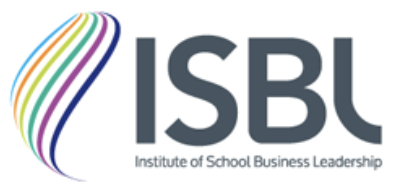
DFE Local Support Offer
Following the success of the School Resource Management webinars and the high number of requests from school and trust business professionals (SBP) for in-person training, the DfE are funding 80 in-person training modules.
There will be a choice of twelve training modules, which will be delivered via in-person, practical training sessions until October 2025. The training will be focused on technical skills and knowledge, career development and pathways, soft skills and capacity building.
The sessions will run for up to 3 hours and are available for up to 30 attendees per session. The training is available to trusts and regional network groups who would be interested in facilitating one of the following sessions for solely their own SBPs and/or colleagues within their region. The eight sessions currently available are detailed below.
If you are interested in finding out more information please email: training@isbl.org.uk.
Technical Skills and Knowledge
-
Learning Outcomes
This training will reference and help to meet the following knowledge descriptors from the ISBL Professional Standards across the Lead Practitioner Level of the Finance Discipline:
[2.31] Understands how to develop and maintain budget planning processes that are able to withstand scrutiny as part of the overall governance and approval process.
[2.35] Understands how to develop robust evidence-based income and expenditure assumptions.
[2.39] Understands national and local formulae and how these affect the school’s or trust’s allocation.
Session focusWhy does effective budgeting and financial planning matter?
What does your financial planning cycle look like?
Where can you source information to support my budget assumptions?
What do you do about Known Unknowns and Unknown Unknowns?
How do you involve the Board in medium- and long-term financial planning?
-
Learning Outcomes
This training will reference and help to meet the following knowledge descriptors from the ISBL Professional Standards across the Lead Practitioner Level of the Human Resource Discipline:
[4.3] Demonstrates a good working knowledge of data analysis approaches and systems to monitor and evaluate performance to identify opportunities/ risks.
[4.15] Can tailor recruitment and selection approaches to appeal to different candidates.
[4.19] Understands how to build and use a process of induction and assess the value it offers.
[4.27] Understands and has experience of using non-financial incentives to improve attraction and retention of staff, with consideration for alternative working practices and budgetary constraints.
Session FocusInforming organisational design including the importance of skills audits
Effective recruitment to meet organisational strategic priorities
Induction and performance management including regular professional dialogue
Implementing flexible and hybrid working approaches in schools and trusts (including flexible retirement)
Using HR performance indicators to support staff retention, EDI and wellbeing
-
Learning outcomes
This training will reference and help to meet the following knowledge descriptors from the ISBL Professional Standards across the Lead Practitioner Level of the Operational Leadership Discipline:
[1.3] Understands qualitative and quantitative data analysis to aid the monitoring of operational performance.
[1.7] Understands different leadership styles and how they might create an inclusive and innovative leadership and team approach.
[1.11] Understands the school’s or trust’s commitment to promoting the principles of wellbeing and EDI. Can support the embedding of these values across the school or trust.
[1.15] Understands the benefits of carrying out an annual skills audit by schools or trust
Session FocusThe importance of effective communication and appropriate channels of communication
Building high performing teams and the importance of organisation culture and values
Developing a wellbeing strategy and collective ownership
Effective communication skills – active listening, clarity and conciseness, empathy and emotional intelligence, feedback.
Barriers to effective communication and overcoming these barriers.
Team dynamics and roles including annual skills audits.
Creating and managing diverse and geographically spread teams.
Monitoring of team and operational performance through quantitative and qualitative data.
Continuous improvement and learning – feedback loops and professional development
-
Learning Outcomes
This training will reference and help to meet the following knowledge descriptors from the ISBL Professional Standards across the Lead Practitioner Level:
[1.14] Is aware of wider professional learning and CPD opportunities available to support self and other staff across the profession
[4.42] Can analyse and propose relevant CPD opportunities to meet identified needs
Session FocusUnderstanding career pathways.
Professional Development strategies
Supporting Staff in their Career Development
Networking and Mentorship
-
Learning outcomes
This training will reference and help to meet the following knowledge descriptors from the ISBL Professional Standards across the Lead Practitioner Level of the Operational Leadership Discipline:
[1.7] Understands different leadership styles and how they might create an inclusive and innovative leadership and team approach.
[1.43] Understands the value of due diligence in assessing the impact of change, innovation and growth.
Session focus
Developing and setting organisational culture and values
Leadership styles and effective leadership – including effective internal and external communication of strategic priorities and measuring understanding and engagement
Gain self-awareness of your leadership characteristics and your professional development needs.
Strengthening your preparedness and skills to lead others.
Using appropriate leadership styles (and tools) for specific situations and desired outcomes.
Efficiently and effectively developing the capacity of those whom you lead.
Develop a culture of continuing professional learning within your organisation.
Effective planning and implementation of planned organisational change.
Responding successfully to unexpected outcomes and challenges.
Capacity Building and Career Development
-
Learning outcomes
This training will reference and help to meet the following knowledge descriptors from the ISBL Professional Standards across the Lead Practitioner Level:[1.23] Can draw on relevant school or trust management information data to contribute to school or trust improvement, monitor performance and manage risk.
[2.43] Can lead on the implementation of DfE and sector-endorsed tools (e.g. VmFI, Benchmarking, SRMSAC, SFVS and ICFP).
[2.47] Can analyse data to identify trends.
Session FocusWhat is ICFP and what is its purpose.
The benefits of utilising ICFP and its impact in ensuring efficient resource use in schools and trusts.
How to accurately calculate and analyse key metrics.
The importance of benchmarking and utilising threshold data.
How to identify efficiencies and potential issues in the school’s resource use.
The importance of context to ICFP interpretation and how this influences choices and decisions.
How to use ICFP data to make recommendations to assist strategic decision-making.
How to ensure senior leaders, governors and trustees can effectively interpret and utilise ICFP data to ensure the efficient use of school resources.
-
Learning outcomes
This training will reference and help to meet the following knowledge descriptors from the ISBL Professional Standards across the Lead Practitioner Level:
[1.15] Understands the benefits of carrying out an annual skills audit by schools or trusts.
[1.43] Understands the value of due diligence in assessing the impact of change, innovation and growth.
[1.67] Understands and can apply a wide range of strategic planning theories and tools used to formulate short-, medium- and long-term plans for the school or trust.
[4.3] Demonstrates a good working knowledge of data analysis approaches and systems to monitor and evaluate performance to identify opportunities/risks.
[4.11] Has experience of staff resourcing and legal considerations when restructuring to support resource optimisation. Seeks external advice as required.
[4.51] Understands relevant and current employment (including diversity) and data protection law and any proposed changes. Knows how to propose mitigations against any potential risks.
Session focusImportance of aligning personnel planning to strategic priorities and developing your school or trust.
Developing a whole school or trust approach to optimise personnel as a key resource.
Succession planning and annual skills audits including job revaluation.
Best practice for conducting effective performance reviews and using performance review data to support personnel planning.
Understanding personnel capabilities and utilising skills matrixes in readiness for growth opportunities.
Personnel development strategies and using data to create a proactive rather than reactive personnel strategy, with consideration of EDI, wellbeing and mental health.
Building internal capability and transferring intellectual knowledge through knowledge transfer planning.
-
Learning outcomes
This training will reference and help to meet the following knowledge descriptors from the ISBL Professional Standards across the Lead Practitioner Level:
[1.14] Is aware of wider professional learning and CPD opportunities available to support self and other staff across the profession
[4.42] Can analyse and propose relevant CPD opportunities to meet identified needs.
Session focusUnderstanding the changes for schools under the new Procurement Act 2023.
The principles of transforming public procurement and key challenges.
How to develop compliant and effective procurement strategies.
Understanding who to include and consult in the procurement process.
Evaluating when and how to use approved DFE frameworks and collaborative purchasing opportunities, as well as where to get help with procurement.
Carrying out effective needs analysis to develop accurate specifications
Key factors to achieving best value and benchmarking considerations e.g. including sustainability targets
-
Learning Outcomes
This training will reference and help to meet the following knowledge descriptors from the ISBL Professional Standards across the Lead Practitioner Level:
[1.3] Understands qualitative and quantitative data analysis to aid the monitoring of operational performance.
[1.7] Manages effectively a range of view points and opinions and can overcome differences in a fair and equitable manner.
[1.55] Can lead on project management processes.
[5.31] Can manage the development of expansion and improvement planning processes to optimise estate resources.
Session FocusThe role of project management in delivering organisational strategy and mobilising new initiatives.
Overview and discussion of key terms: scope, time, cost, quality expectations, stakeholders, risk
A basic overview and comparative analysis of approaches to project management and the importance of using the right approach for your project.
The importance of effective project management for schools and trusts
Processes for initiating, planning and managing projects, including the use of planning, communication and monitoring tools
Best practices for communication and coordination covering managing multi-teams and multi-sites and the use of KIT meetings.
The factors which contribute to effective project management.
Stakeholder analysis and management techniques.
-
Learning outcomes
This training will reference and help to meet the following knowledge descriptors from the ISBL Professional Standards across the Lead Practitioner Level of the Operational Leadership Discipline:
[1.3] Understands qualitative and quantitative data analysis to aid the monitoring of operational performance.
[1.23] Can draw on relevant school or trust management information data to contribute to school or trust improvement, monitor performance and manage risk.
[1.27] Understands the purpose of risk assessment and risk management techniques, including appropriate mitigations.
[1.67] Understands and can apply a wide range of strategic planning theories and tools used to formulate short-, medium- and long-term plans for the school or trust.
Session focus
Distinguishing between strategic planning and operational leadership and how they interrelate
Fundamentals of strategic planning – vision and mission statements, environment scanning (SWOT and PESTLE analysis), strategic objectives.
Strategic implementation - Monitoring and evaluating strategic plans through KPI’s, performance data and evaluation plans
Fundamentals of Operational leadership – roles and responsibilities of operational leaders, building high performing teams and operational excellence principles.
Evidence-based decision making and leading strategic discussions
Effective resource management – Finance, people and operational efficiency.
Risk management and contingency planning
-
Learning outcomes
This training will reference and help to meet the following knowledge descriptors from the ISBL Professional Standards across the Lead Practitioner Level:
[1.59] Understands the need to consider and evaluate spending and decision-making practices to ensure that sustainability, social and environmental responsibility are met.
[3.7] Is experienced in managing procurement policies, strategy and activities that prioritise social, ethical and environmental considerations.
[5.7] Can make recommendations for the efficient management of assets with consideration for sustainability.
[5.39] Is experienced in managing and developing maintenance, facilities and grounds management plans to minimise environmental impact and disruption to teaching and learning.
Session focus
What is meant by sustainability, and types of sustainable considerations (e.g. environmental, social value and ethical practice)
The importance of sustainability for schools and trusts as part of a whole school / trust approach including operational and strategic decision making.
Climate action planning that covers education, skills, decarbonisation, adaptation and biodiversity, and existing support and tools commissioned by the DfE.
Specific focus on Sustainability in Finance Procurement and Estate Management –
How to measure, monitor and report on success through operational metrics (e.g. energy savings etc) including setting initial benchmarks (e.g. energy audit).
Embedding a ‘green thread’ through strategic and operational decision-making across schools and trusts (including governance and leadership policies, curriculum and community engagement).
-
Learning outcomes
This training will reference and help to meet the following knowledge descriptors from the ISBL Professional Standards across the Lead Practitioner Level of the Operational Leadership Discipline :
[1.27] Understands the purpose of risk assessment and risk management techniques, including appropriate mitigations.
[1.31] Understands how to lead the development and implementation of clear processes for dealing with adverse events.
[1.51] Understands the importance of compliance with cybersecurity processes and procedures across the school or trust and the risks involved in failing to comply .
Session focus
Cybersecurity fundamentals and principles and how they apply to information security.
Awareness of cyber threatsto schools and trusts, including the use of new and emerging technology.
Identifying cybersecurity risks and vulnerabilities.
Implementing, reviewing and monitoring safe practices for personal and organisational security.
Understanding regulatory and compliance requirements.
Applying cybersecurity best practices, utilising DFE tools and improving digital and data capability.
Training others to reduce the risks of cybersecurity
Soft Skills
Benefits of Undertaking the Training
All training is aligned to the ISBL Professional Standards and will help delegates to meet specific Standards.
In-depth training delivered over a 2.5 hour period with opportunities for interactive learning, peer networking and sharing best practice.
All training is developed and delivered by ISBL subject matter experts including SBPs, educational leaders and accredited training providers to ensure training is fully contextualised.
Training is delivered to MATs or regional network groups at a time and location convenient to their requirements.
Training is fully accredited and certified by ISBL.
Excellent feedback and satisfaction scores as demonstrated below:

If you are interested in finding out more information please email: training@isbl.org.uk

